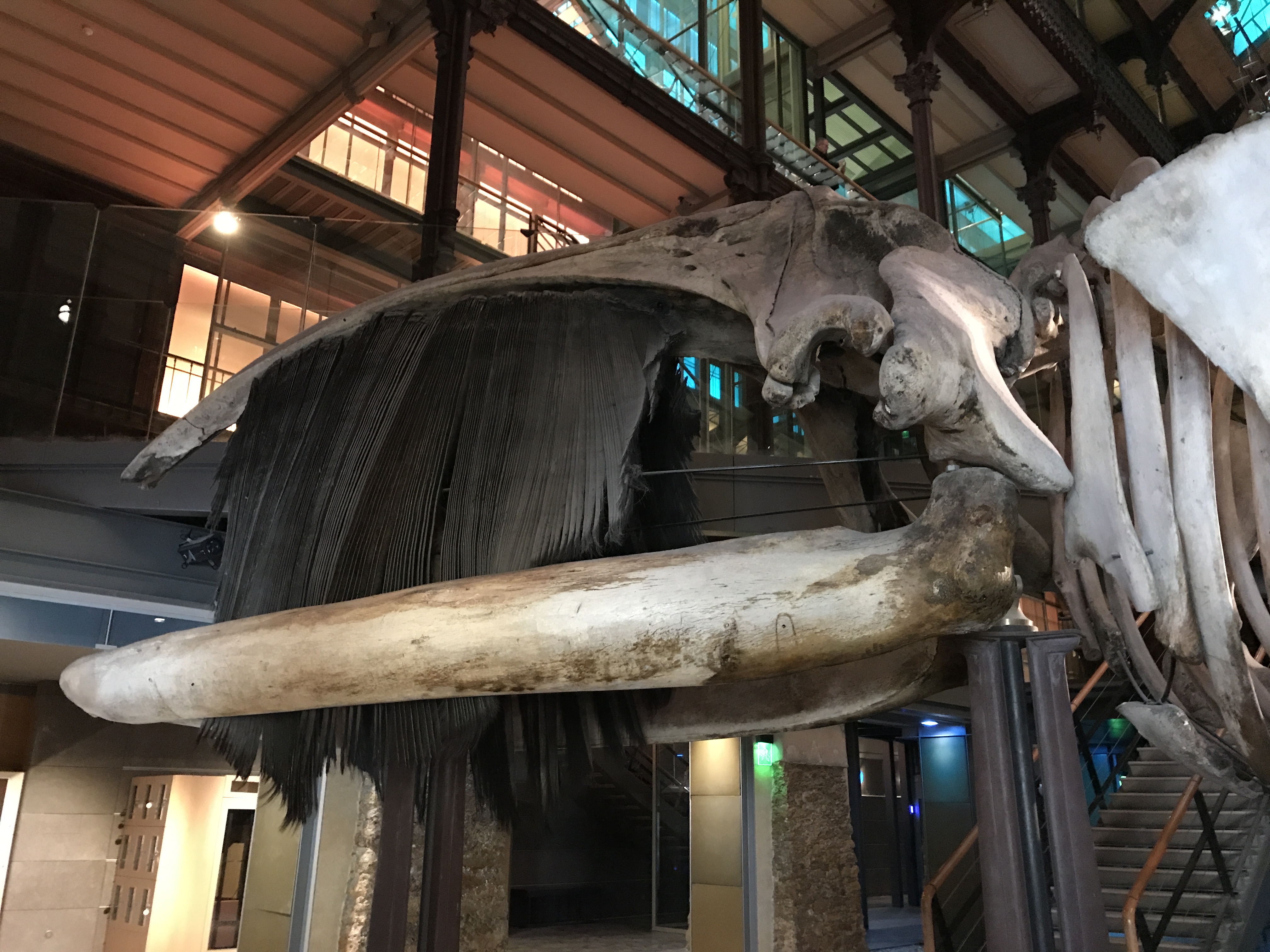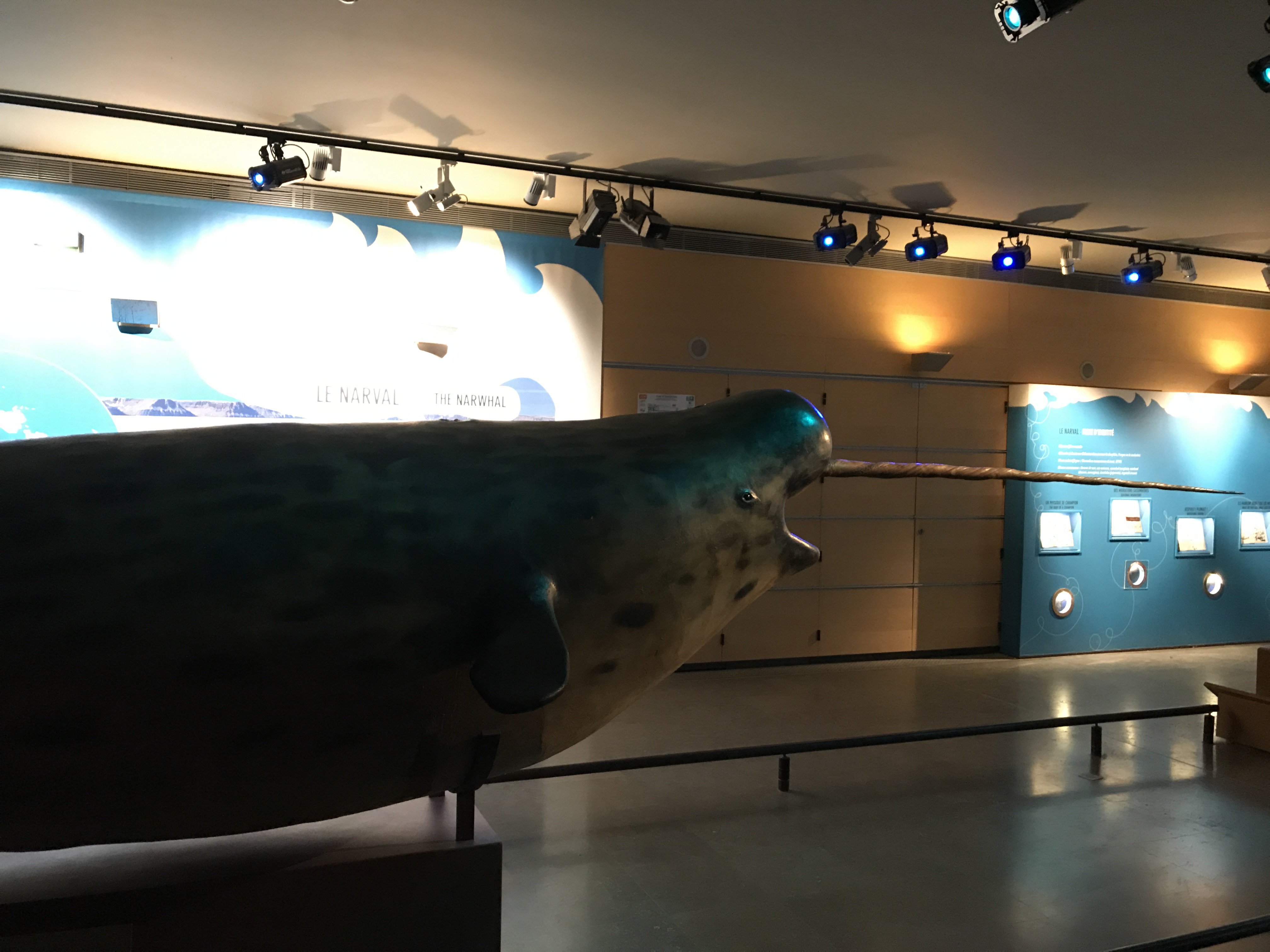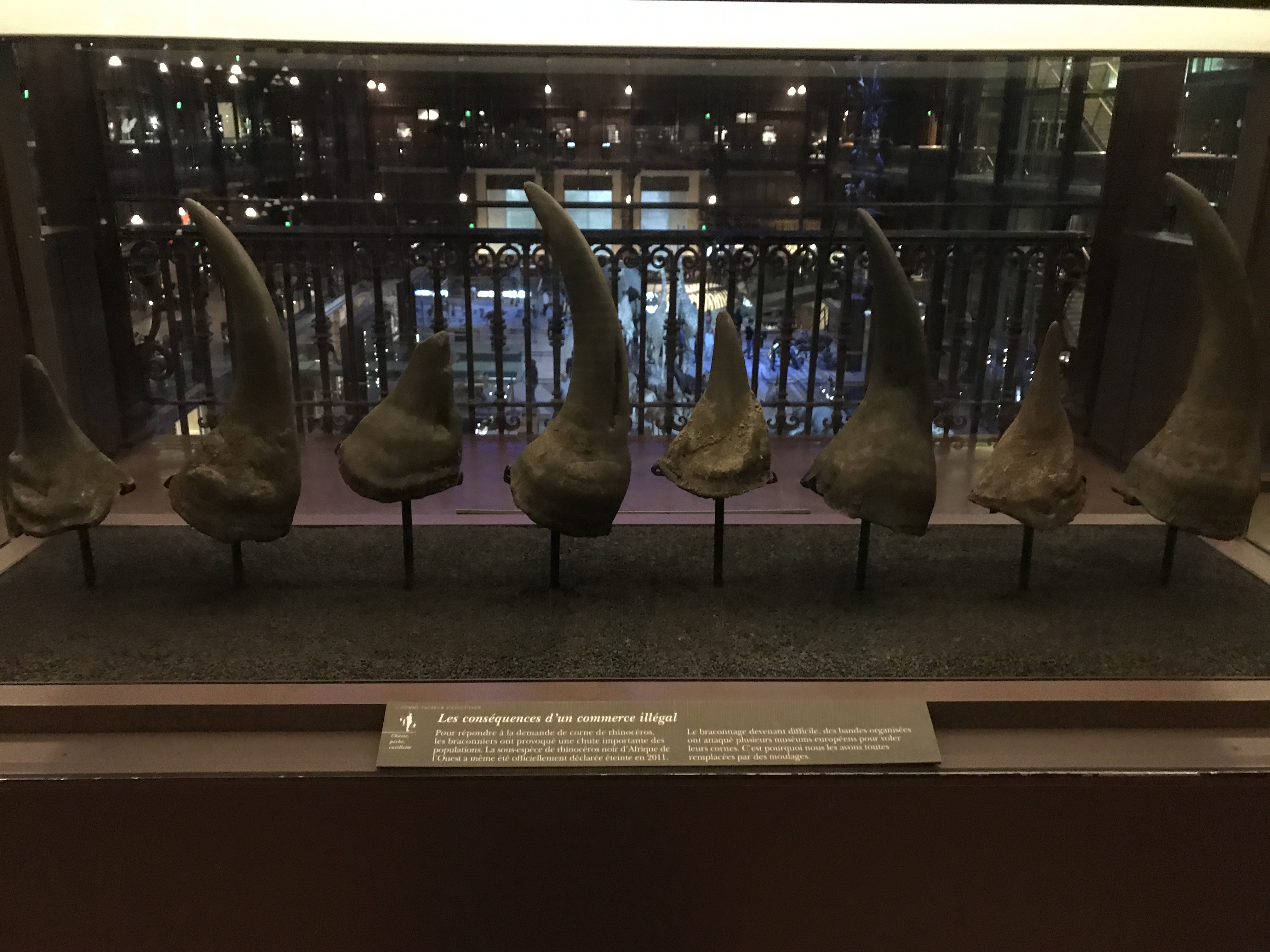A visit to Paris, France doesn’t have to be all about delicious éclairs and macarons. It can also be an incredible learning opportunity for your mind, not just your tastebuds. The Grande Galerie de L’Évolution (or the Grand Hall of Evolution) is part of the Muséum National d’Histoire Naturelle (MNHN) in Paris, France. The 19th century building is home to over 7,000 preserved animals.

Over the past couple or years, we’ve bumped destinations higher up on our priority list because of global warming and because so many species are on the verge of extinction. One of the most incredible experiences we recently had was in India, where we had a rare opportunity to see tigers in the wild. The World Wildlife Fund (WWF) believes there are less than 4,000 wild tigers left in the wild, so unfortunately there’s a real chance that the ability to see a tiger in it’s natural habitat may soon disappear.

We’ve seen a number of the natural history museums in the United States (including the American Museum of Natural History in New York City, The Field Museum in Chicago and the Smithsonian National Museum of Natural History in Washington D.C.), but the Grande Galerie de L’Évolution stood out from that pack for a number of reasons.

First of all, the way the collection is laid out is breathtaking. Soaring ceilings, multihued lighting and creative exhibits push the boundaries of what a natural history museum can and should be.

Despite many of the exhibits featuring taxidermied animals (which usually come across as being dated or stuffy), the Grande Galerie de L’Évolution gives its animals room to roam.

In fact, you may end up coming away from your visit feeling as though the critters are just as curious about you as you are about them.

While we had a wonderful time ducking under giant whale skeletons and their baleen, there was one exhibit in particular that left a lasting impression on us and that was the, “Espèce Menacées, Espèces Disparues (Threatened Species, Extinct Species)” exhibit.

All of the creatures in the room are either endangered or extinct. The lighting is so low, that a sense of dread and wonder fills you as you step inside the room.

In the room we caught a glimpse of an endangered mountain gorilla. Seeing such a magnificent creature stuffed behind glass brought us to tears.
If you love animals as much as we do, here’s a list of some of the other critter focused wonders we’ve discovered around the globe.
We hope one day we’ll get to see one of these incredible mammals in its natural habitat in Rwanda, Uganda or Zaire. According to the WWF, the mountain gorilla is listed currently as critically endangered and there are only around 880 of them left in the wild.

It’s easy to focus on the cuddly fuzzy creatures that are displayed in the hall of threatened and extinct species, but there are also a large number of birds, fish, insects and mollusks that are also featured in the room.

Most of the species in the hall were victims of human activities including over hunting or rapid loss of natural environment due to deforestation, farming or other activities. For example, the coelcanthe (which is often referred to as a “living fossil” since scientists thought it had been extinct for nearly 65 million years) is believed to be threatened by deep sea trawling.
In addition to the Grande Galerie de L’Évolution, here’s a list of other neat little local spots we love across Paris.
Only about 200 specimens have been caught since 1987, making it one of the rarest creatures on the planet. Since each of the specimens in the room is rare and unique, protecting them is important. The museum takes great care to preserve each creature in this room by regulating the humidity and lighting conditions.

The Grande Galerie de L’Évolution is fairly easy to navigate even if you don’t speak French.

Maps at the front are available in a variety of languages and you can also take a peek at the museum’s layout online here.

For the most part, the only visitors we bumped into at the museum were young French school children, so it was quite easy to pause and appreciate each exhibit without feeling rushed or hurried.

There are extremely child friendly features like the narwhal room that helps kids understand the tie between unicorns and the unicorn of the sea.

Another sad, but important reason to go to the Grande Galerie de L’Évolution now is the poor rhinos.

In case you aren’t familiar with the current rhino situation, the last western black rhino was declared extinct in 2011, and there may be only a single northern white male rhino left in the world.

Unfortunately these rhinos are unable to rest, even in death, even in a museum. Apparently highly organized criminal gangs have taken to stealing the horns that are on display in European museums. Sadly this means that the rhinos in the museum are sporting casts and not their natural horns.

There are a number of incredible museums around the world (some of our personal favorites include the magnificent Whales of Iceland in Reykjavík, the Vasamuseet in Stockholm, the Newseum in Washington D.C. and the highly controversial War Remnants Museum in Ho Chi Minh City), but given the current state of the world, the Grande Galerie de L’Évolution is one you and your family shouldn’t miss.

Grande Galerie de L’Évolution
*Part of the Muséum National d’Histoire Naturelle or MNHN.
Address: 36 Rue Geoffroy-Saint-Hilaire
75005 Paris, France
Hours: Monday Through Sunday 10:00am to 6:00pm *Closed on December 25th, January 1st and May 1st. The last admission is 45 minutes prior to closing at 5:15pm every evening.
Phone: 01 40 79 56 01/54 79 *Available From 10:00am to 6:00pm Local Time in Paris.
Email: valhuber@mnhn.fr
Pricing (All in Euros): Grande Galerie de L’Évolution €9, Grande Galerie de L’Évolution and the Temporary Exhibition €11, Grande Galerie de L’Évolution and the Children’s Gallery €11, Grande Galerie de L’Évolution and the temporary exhibition and the Children’s Gallery €13 *Visitors who are: under 26 years old, teachers with valid teaching credentials, people with disabilities and their guides, journalists with valid press cards and a select group of other guests are able to visit the Grande Galerie de L’Évolution for free. See this page for more details.


2 Pingback